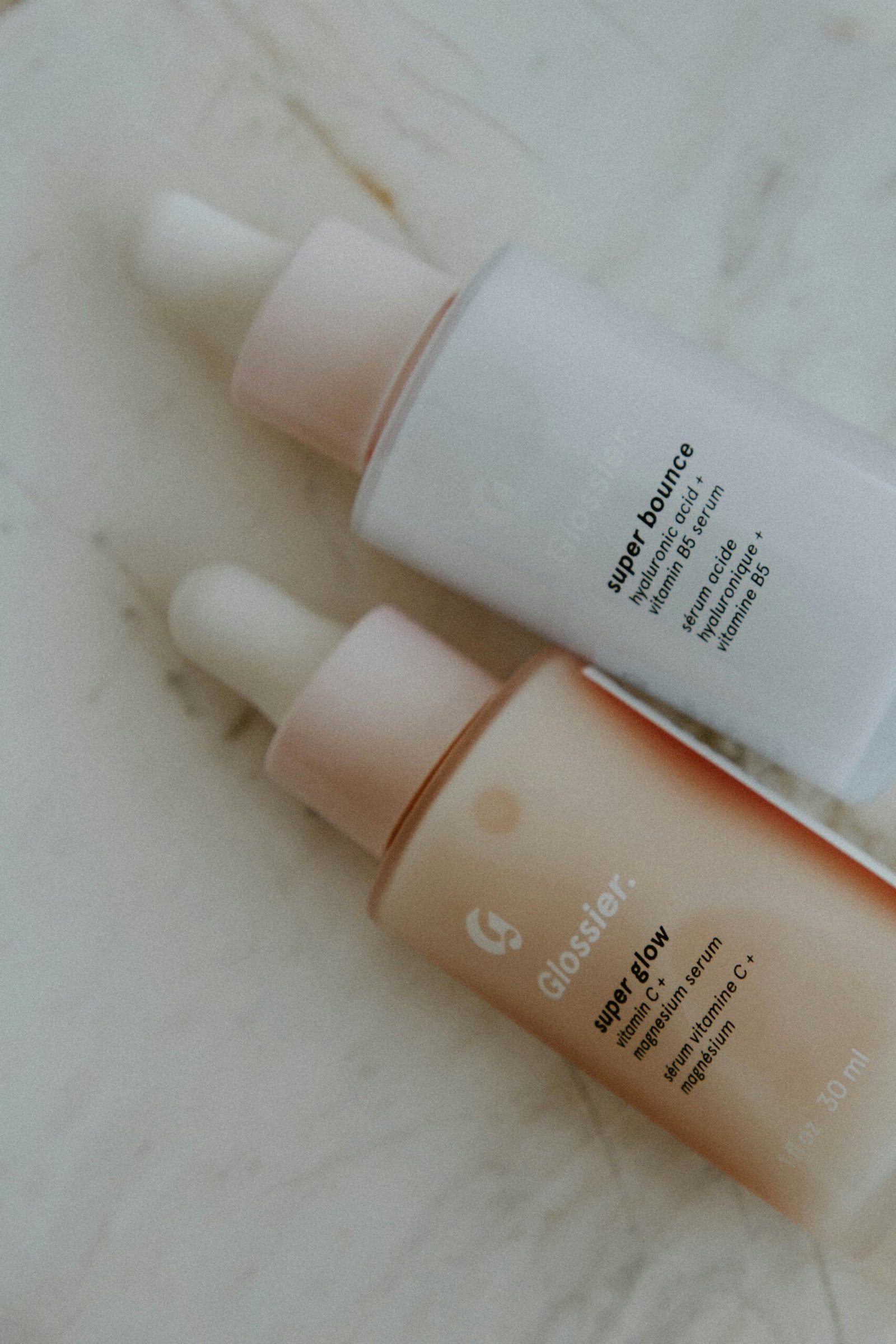Understanding the Importance of Night Cream
Night cream plays a crucial role in maintaining optimal skin health, particularly due to the skin’s natural repair and rejuvenation processes that occur during sleep. Unlike the daytime, when the skin is exposed to environmental stressors such as pollution and UV rays, the nighttime is primarily a restorative period. During this time, the skin undergoes cellular regeneration, making it an ideal moment for applying specialized skincare products, such as night creams.
One of the key benefits of night creams is their formulation, designed specifically to address the unique needs of the skin while it sleeps. These creams tend to be richer and more hydrating than regular moisturizers, providing deeper nourishment and targeted treatment for various skin concerns. Many night creams contain active ingredients that promote skin cell turnover, such as retinol, peptides, and antioxidants, which can effectively combat signs of aging and improve skin texture.
Moreover, night creams often possess the ability to formulate occlusive barriers that help lock in moisture, preventing trans-epidermal water loss. This hydration boosts the skin’s elasticity and resilience, leading to a more youthful complexion. In contrast, regular moisturizers are designed for day use and often include ingredients aimed at protecting the skin from external elements rather than enhancing its repair processes.
By choosing a dedicated night cream, individuals can re-establish their skincare regimen focused especially on rejuvenation and recovery. With consistent use, the advantages of a properly formulated night cream can be profound, resulting in visibly healthier skin over time. Functioning well in harmony with the body’s natural rhythms, night creams stand out as a necessity for those seeking to enhance their skincare routine and achieve overall skin vitality.
Key Ingredients to Look For in a Night Cream
Choosing a night cream that effectively addresses your skin’s needs requires an understanding of the key ingredients that promote hydration, nourishment, and repair. High-quality night creams often incorporate natural components that not only enhance skin appearance but also support its overall health. One crucial category of ingredients to consider is antioxidants, which protect the skin from oxidative stress and environmental damage. Ingredients like Vitamin C and E are powerful antioxidants that can enhance skin radiance while neutralizing free radicals.
Another significant component in effective night creams is hyaluronic acid. Renowned for its remarkable ability to retain moisture, hyaluronic acid helps to plump the skin and maintain its elasticity. This ingredient is essential for keeping skin hydrated overnight, making it feel rejuvenated upon waking. Complementing this is retinol, a derivative of Vitamin A known for its anti-aging properties. Retinol encourages cell turnover and boosts collagen production, leading to smoother skin texture and a reduction in the appearance of fine lines and wrinkles.
Additionally, plant extracts play a pivotal role in nourishing the skin. For instance, aloe vera is famed for its soothing properties, making it an excellent choice for calming irritated skin. Essential oils, such as lavender and tea tree oil, not only provide a pleasant fragrance but also possess antibacterial and anti-inflammatory benefits, aiding in skin repair while promoting relaxation as part of a nighttime routine.
When selecting a natural night cream, it is essential to examine the ingredient list for these beneficial components. Their combined effects can lead to well-hydrated, nourished, and healthier-looking skin, ensuring that you wake up with a refreshed and radiant complexion.
Identifying Your Skin Type
Understanding your skin type is essential when selecting the best healthy natural night cream. Generally, skin types are classified into four categories: oily, dry, combination, and sensitive. Each type exhibits distinct characteristics that influence how your skin responds to various products, including night creams.
Oily skin tends to have an excessive production of sebum, making it appear shiny and prone to breakouts. Individuals with this skin type should look for lightweight, oil-free night creams that can hydrate without adding additional oil. Ingredients such as hyaluronic acid and non-comedogenic oils can help maintain moisture balance while preventing clogged pores.
Dry skin, on the other hand, is characterized by a lack of moisture, which can lead to flakiness and rough texture. For this skin type, it’s important to select a night cream rich in emollients and humectants. Ingredients like shea butter, glycerin, and natural oils provide the necessary hydration and help to restore skin elasticity overnight.
Combination skin typically has both oily and dry areas, often seen with an oily T-zone (forehead, nose, and chin) and dry cheeks. A balanced approach is crucial for this skin type. Look for night creams that offer hydration without overwhelming oiliness. Products containing ingredients like aloe vera can provide the right hydration for drier areas while being light enough for the oiler parts.
Sensitive skin may react to many products, resulting in redness, irritation, or allergies. Individuals with this skin type should focus on fragrance-free, hypoallergenic formulations. Look for night creams that feature calming ingredients such as chamomile or aloe vera to soothe and protect the skin overnight.
To identify your skin type, examine it throughout the day. Observe how your skin feels and looks in different areas, particularly after cleansing. This awareness not only helps in choosing an appropriate night cream but ensures your skincare routine is tailored to your unique needs for optimal health and vitality.
The Benefits of Using Organic and Natural Night Creams
The choice between organic and synthetic night creams can significantly affect both skin health and the environment. One of the primary benefits of using organic and natural night creams is their formulation, which often includes fewer harsh chemicals and synthetic fragrances that can lead to irritation or allergic reactions. Natural ingredients, such as plant extracts and essential oils, tend to be gentler on the skin, making them suitable for a variety of skin types, including sensitive skin.
Many synthetic options contain preservatives and artificial additives that may disrupt the skin’s natural balance or cause long-term effects that are still being studied. Opting for organic night creams, which are typically free from parabens, sulfates, and synthetics, can help mitigate such risks. These creams primarily utilize ingredients that are derived directly from nature, allowing for a safer and often more nourishing experience.
Additionally, organic skincare products contribute positively to the environment. The cultivation of ingredients for organic night creams emphasizes sustainable farming practices that avoid harmful chemicals and pesticides. This not only results in cleaner products for consumers but also fosters healthier ecosystems by preserving biodiversity and reducing pollution. By choosing natural night creams, consumers support practices that prioritize the health of the planet, which is an increasingly vital consideration in today’s environmentally conscious world.
The trend towards organic skincare is also linked to increased transparency in product labeling. Consumers can more easily identify the sources of ingredients and understand the impact on both their health and the environment. As awareness grows regarding the benefits of natural and organic products, the popularity of these night creams continues to rise, promoting a broader shift towards healthier personal care choices.
Top 5 Recommendations for Healthy Natural Night Creams
When choosing a night cream, it is essential to identify products that cater to your skin’s specific needs. Here are our top five recommendations for healthy natural night creams that stand out in terms of formulation, key ingredients, and benefits.
1. Olay Regenerist Night Recovery Cream: This cream is ideal for those seeking hydration and anti-aging benefits. Its formulation features amino-peptides that promote skin renewal while you sleep. Additionally, it contains niacinamide, known for its ability to improve skin texture and even out skin tone. Suitable for all skin types, this cream hydrates the skin deeply, providing a youthful glow by morning.
2. Burt’s Bees Intense Hydration Night Cream: Infused with clary sage, this night cream offers deep moisture, making it perfect for dry or dehydrated skin. Its natural ingredients work to replenish moisture while enhancing the skin’s natural barrier. Users report softer skin after just one use, benefiting from its combination of natural extracts and rich hydration.
3. 100% Pure Brightening Night Cream: This formulation is especially suited for those with dull or uneven skin tone. Packed with vitamin C and natural oils, it helps to brighten and refresh the skin overnight. It’s perfect for combination and normal skin types and provides essential antioxidants that combat free radicals.
4. Weleda Skin Food Night Cream: A beloved product among skincare enthusiasts, this cream is crafted with a blend of plant oils and extracts such as calendula and chamomile. It delivers intense hydration and is suitable for all skin types, particularly dry and sensitive skin. Its rich texture ensures that your skin feels nourished and replenished by morning.
5. CeraVe Skin Renewing Night Cream: With a unique blend of essential ceramides and hyaluronic acid, this night cream focuses on restoring the skin barrier while providing deep hydration. Ideal for those with dry or sensitive skin, it supports skin elasticity and promotes a healthier complexion with regular use.
These five night creams represent some of the best healthy natural options available, each catering to different skin concerns and types, ensuring that you find the right product for your nighttime skincare routine.
How to Properly Apply Night Cream
Applying night cream correctly is essential to maximize its benefits for skin health and rejuvenation. For optimal results, timing plays a significant role. It is recommended to apply night cream after cleansing and toning the face, ideally about 30 minutes before bedtime to allow the skin to absorb the product effectively. This timing enables the cream to work in conjunction with the body’s natural repair processes, which peak during sleep.
When it comes to the quantity of night cream, a pea-sized amount is generally sufficient for the entire face, with a little more needed for the neck and décolletage area. Using too much product can cause the skin to feel greasy and can hinder absorption. It is crucial to distribute the cream evenly across the skin, ensuring a balanced application that covers all areas.
The method of application can significantly enhance the efficacy of the night cream. Using the fingertips, gently dab the cream onto the skin, focusing on areas that require extra attention, such as the forehead, cheeks, and around the eyes. This tapping motion helps stimulate circulation and encourages better absorption. For added benefits, consider incorporating facial massage techniques during application. Massaging in upward and outward motions can promote lymphatic drainage and improve skin elasticity.
Additionally, applying night cream after specific treatments, such as serums or essences, can enhance its effectiveness. Layering should begin with the thinnest consistency product first, moving to thicker formulations. This ensures that the skin receives the nutrients from each product without any interference. By adhering to these application techniques and timing, you can significantly enhance the absorption of your night cream, leading to healthier, revitalized skin by morning.
Common Mistakes to Avoid When Choosing a Night Cream
Selecting the right night cream is crucial for achieving healthy, radiant skin, yet many individuals fall into common pitfalls that can hinder their skincare efforts. One major mistake is choosing products containing harsh chemicals. Many consumers often overlook the ingredient list, opting instead for appealing packaging or marketing claims. However, harsh ingredients can irritate the skin, leading to inflammation or allergic reactions. It is essential to prioritize formulations featuring natural and gentle ingredients, particularly if you have sensitive or reactive skin.
Another frequent misstep is neglecting to consider one’s unique skin type. Night creams are formulated to address different skin concerns, whether it be dryness, oiliness, or aging. Utilizing a product that does not cater to your specific skin needs can result in adverse effects. For instance, those with oily skin may make the mistake of opting for a heavy, emollient-rich cream that exacerbates their oiliness, while individuals with dry skin might choose a lightweight formulation that does not provide adequate hydration.
Over-applying cream is an equally prevalent error. Many people assume that using more product will yield better results, leading to clogged pores and a greasy finish. It is important to apply only a pea-sized amount of night cream, gently massaging it into the skin to allow for optimal absorption. Furthermore, misconceptions surrounding night creams can lead to ineffective usage. For example, some individuals believe that a night cream is only necessary when dealing with visible signs of aging. In reality, preventative care is vital, and incorporating a night cream into your routine can promote skin health over time.
By being aware of these common mistakes, individuals can make more informed decisions when selecting the best night cream suited to their needs, ensuring a more effective skincare routine.
Additional Skincare Tips for Nighttime Routine
Achieving healthy skin requires more than just applying a high-quality night cream. A comprehensive nighttime skincare routine should begin with thorough cleansing to remove impurities, makeup, and excess oils accumulated throughout the day. Use a gentle, hydrating cleanser suited to your skin type, as this will help avoid stripping the skin of its natural moisture barrier. Following this, a toner can be applied to balance the skin’s pH levels and prepare it for the next steps in your regimen.
Exfoliation is another crucial step that should be considered in your nighttime routine. Incorporating a chemical exfoliant, such as AHAs or BHAs, 1 to 3 times a week can enhance skin texture and allow for better absorption of your night cream. Avoid over-exfoliating, as this can lead to irritation, sensitivity, and compromise the skin barrier. Instead, opt for a mild formula and adjust according to your skin’s tolerance.
Additionally, incorporating serums or oils can significantly boost your skincare routine’s efficacy. Serums rich in antioxidants, hyaluronic acid, or vitamins can penetrate deeply and provide targeted treatment for concerns like dullness, uneven tone, or signs of aging. Oils such as jojoba or argan can be layered after the serum, adding extra hydration and sealing in moisture. Always apply your night cream as the final step; this locks in all the beneficial ingredients and provides a protective layer that nourishes the skin overnight.
It is essential to select products that align with your skin type and concerns. Pay attention to the ingredient labels and avoid harsh chemicals that may damage your skin. By following these supplementary skincare tips, you can create a comprehensive nighttime routine that complements the use of your healthy natural night cream, promoting an overall healthy skin regimen.
Reader Testimonials and Experiences
Numerous individuals have shared their experiences with healthy natural night creams, providing valuable insights into their effectiveness and the impact they have had on their skin. One reader, Sarah, highlighted her journey with an organic rosehip oil night cream. She reported significant improvements in her skin’s texture and hydration levels after only a few weeks of regular use. “I noticed that my skin felt plumper and more luminous,” she noted, emphasizing how it has become an essential part of her nighttime routine. Sarah also recommended applying the cream with gentle upward strokes to enhance absorption and efficacy.
Another reader, James, had been skeptical about using night creams due to his oily skin. However, he decided to try a lightweight, non-comedogenic option enriched with aloe vera and chamomile extracts. “I was pleasantly surprised by how my skin reacted positively without feeling greasy,” James shared. He suggested patch-testing any new cream before a full application to ensure it doesn’t cause breakouts. His positive results prompted him to stick with his routine, and he now swears by the benefits of using a night cream specifically formulated for oily skin.
A third reader, Maria, shared her experience using a vegan-friendly night cream infused with shea butter and essential oils. She found that this product significantly reduced the appearance of fine lines and gave her skin a healthy glow. “I love the scent and feel of this cream; it’s like a spa treatment at home,” she remarked. Maria recommended checking the ingredient list to avoid potential irritants and opting for creams that cater to individual skin concerns, whether dryness, aging, or sensitivity.
These testimonials illustrate the diversity of experiences with healthy natural night creams. Each reader’s feedback underscores the importance of finding a cream that aligns with one’s skin type and personal preferences, guiding others to make informed decisions that suit their unique needs.







